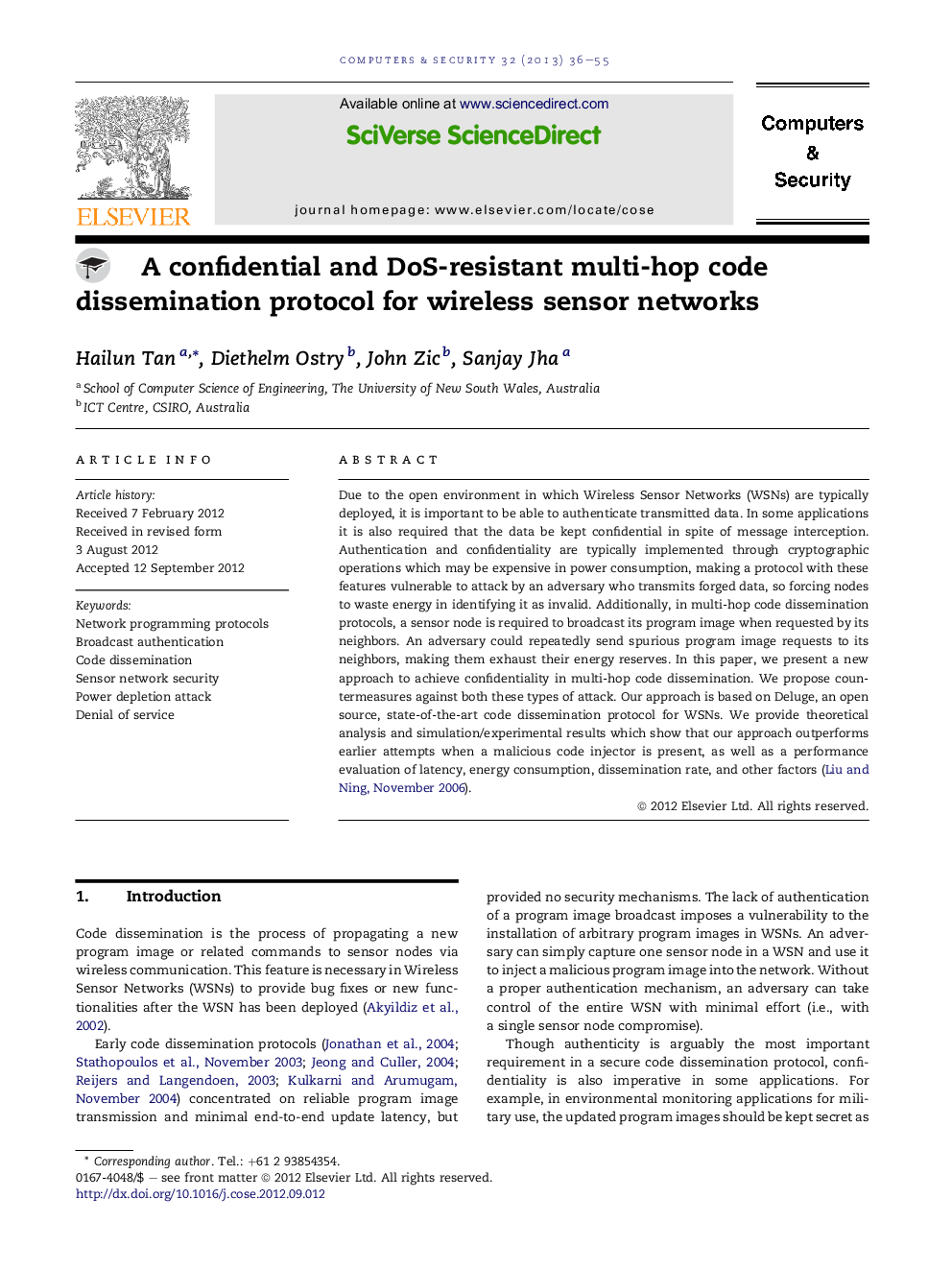| Article ID | Journal | Published Year | Pages | File Type |
|---|---|---|---|---|
| 6884332 | Computers & Security | 2013 | 20 Pages |
Abstract
Due to the open environment in which Wireless Sensor Networks (WSNs) are typically deployed, it is important to be able to authenticate transmitted data. In some applications it is also required that the data be kept confidential in spite of message interception. Authentication and confidentiality are typically implemented through cryptographic operations which may be expensive in power consumption, making a protocol with these features vulnerable to attack by an adversary who transmits forged data, so forcing nodes to waste energy in identifying it as invalid. Additionally, in multi-hop code dissemination protocols, a sensor node is required to broadcast its program image when requested by its neighbors. An adversary could repeatedly send spurious program image requests to its neighbors, making them exhaust their energy reserves. In this paper, we present a new approach to achieve confidentiality in multi-hop code dissemination. We propose countermeasures against both these types of attack. Our approach is based on Deluge, an open source, state-of-the-art code dissemination protocol for WSNs. We provide theoretical analysis and simulation/experimental results which show that our approach outperforms earlier attempts when a malicious code injector is present, as well as a performance evaluation of latency, energy consumption, dissemination rate, and other factors (Liu and Ning, November 2006).
Related Topics
Physical Sciences and Engineering
Computer Science
Computer Networks and Communications
Authors
Hailun Tan, Diethelm Ostry, John Zic, Sanjay Jha,
